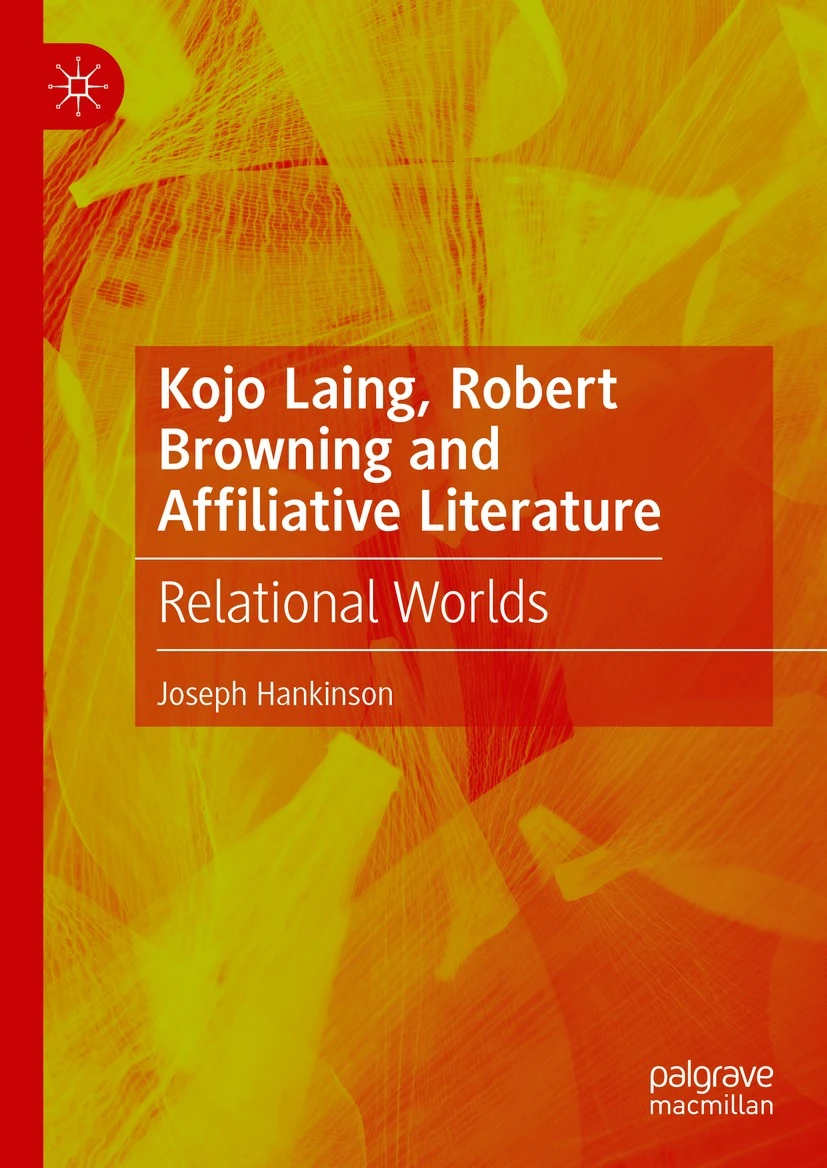
Kojo Laing, Robert Browning and Affiliative Literature: Relational Worlds (Cham: Palgrave Macmillan, 2023)
https://doi.org/10.1007/978-3-031-18776-6
*
“Joseph Hankinson’s intrepid and involving book begins from a surprising perception: that there are many points of similarity between the Victorian poet Robert Browning and the late-20th-century Ghanaian novelist B. Kojo Laing. How come, and so what? In tracing out the answers to those questions, Hankinson not only illuminates the two writers, their contexts and the manifold relations between them, but also develops a new mode of literary enquiry, ‘affiliative criticism’. A must-read for anyone interested in comparative, world and postcolonial literature." Matthew Reynolds, Professor of English and Comparative Criticism, University of Oxford
"This book is an elegant, and eloquent, account of how seemingly disconnected oeuvres can be related by way of their various aesthetic means of contemplating relation. The book's method is richly drawn from its subjects, its author fully alive to his authors' sensitivities." Jeanne-Marie Jackson, Associate Professor of English, Johns Hopkins University
*
This book compares the Victorian British poet Robert Browning and the twentieth-century Ghanaian poet and novelist Kojo Laing―two writers whose texts frequently foreground multi-scalar transregional cartographies, points of connection and translation, and imaginative kinships between different linguistic and cultural communities. Starting from the numerous and surprising points of connection and resemblance between both authors’ texts, this book puts pressure on critical practices that would keep writers like Laing and Browning separate, positing instead the importance of paying attention to the transnational, cross-cultural, and cross-temporal imaginative relationships texts themselves generate. By comparing two writers whose texts represent different points of view on a number of shared and congruent contexts, this book seeks an original way of understanding the relationship between texts and (post-) colonial contexts, texts and other texts. Browning’s and Laing’s shared tendency to foreground trans- and post-national cartographies of relation and difference, and their similarly translational aesthetics, both demand a probing of the disciplinary separation between ‘English Literature’ and ‘Comparative Literature’, as well as ‘literature’ and ‘comparison’, and a fresh awareness of the ways in which literature itself makes comparisons and affiliations. It also involves a version of ‘world literature’ intent on accentuating the relational worlds (linguistic, imaginative, ethical) that texts themselves generate; a criticism sensitive to the ways in which writers from different times and places can still be seen to overlap.